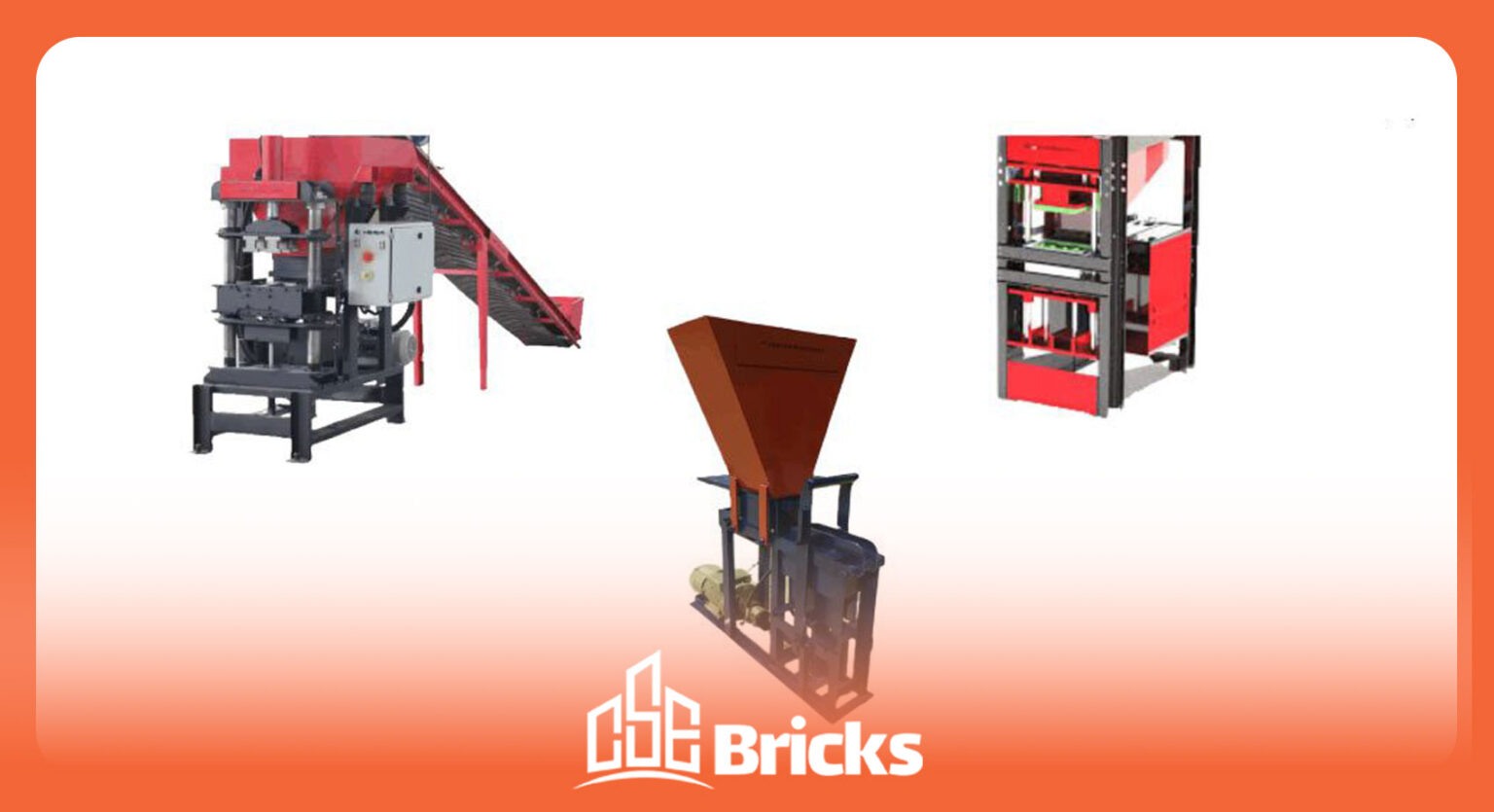Blog
Choosing an Interlocking Brick Machine:

Choosing an Interlocking Brick Machine:
A Comprehensive Smart Buying Guide
Selecting an interlocking brick machine is not something you can expect to do non-professionally! After all, its price is not low, and various individuals claim to produce it. In this article, we will discuss the points that can help you when choosing an interlocking brick machine.
It might be interesting for you to know that the history of interlocking or Lego bricks dates back to 1952.
A Review of the History of Interlocking Bricks
But before that, you should know that the history of compressing soil and combining it with strengthening materials such as cement dates back to the late 18th century, initiated by a person named François Cointeraux.
With the beginning of the 20th century and the advent of modern production tools, it was decided that the technique of soil compression should be operationally implemented using relatively simple methods by engineers. During this time, an engineer named Raúl Ramírez at the CINVA institute in Bogotá, Colombia, developed a form of a simple machine that produced a unique brick, which we know today as interlocking bricks.
(The CINVA-RAM press, designed by engineer Raúl Ramírez at the CINVA center in Bogotá, Colombia)
Despite its simplicity, which had no motorized mechanism and relied solely on human weight to compress the soil, the physical characteristics of the produced brick captured the world’s attention.
Raw Material Supply Process
The process of supplying raw materials before they enter the interlocking brick machine includes the following steps:
Soil, Cement, Color Powder, Resin, etc
According to our experts, the best soil is the waste from sand washing plants. This soil typically contains a suitable mixture of fine stones and washed mineral soil, which has no monetary value and can be obtained in abundance without cost.
When choosing cement, regardless of whether it is black or white, the quality of its production plays a decisive role in controlling costs.
Soil Sieving and Screening
Be aware that you cannot feed gravel and stones larger than 2 mm into the machine. Therefore, the raw materials you introduce into the machine must be smaller than this size.
Mixing Raw Materials in the Mixer
The size and volume of the mixer play a crucial role in your daily production capacity. The mixer’s capacity must be proportionally engineered with the storage tank of the interlocking brick machine.
Performance Accuracy: A Crucial Point in Choosing an Interlocking Brick Machine
Even if you have meticulously followed all the steps for preparing raw materials, you might still end up with a low output at the end of the work shift.
The reason for this issue is directly related to the quality of the interlocking brick machine. We have received numerous reports that machines produced by some manufacturers, despite their previous advertisements, lack sufficient speed and precision. For example, to produce 3000 pieces per day, you need a machine that can produce 6 pieces per minute. However, in practice, you may find that the speed of the compression jaws is much lower than required.
So, when choosing an interlocking brick machine, make a smart decision.
Interlocking Bricks Must Be Perfect for Customers to Buy Them
Imagine you are a buyer of interlocking bricks. The seller provides you with bricks that do not have consistent dimensions, especially in terms of uniform height. Unfortunately, it has been observed that some machines lack the ability to precisely control the height and thickness of the bricks, which can be due to electrical issues related to sensors or the accuracy of the PLC, or it can be a mechanical and inherent weakness.
Before selecting an interlocking brick machine, visit the manufacturer with an expert, and try to test a machine that is already prepared. Load and take out the same machine.
Visiting the factory that produces interlocking brick machines, ensuring a standard production line, and thoroughly testing the machine are crucial steps.
Attention to Full Automation in Choosing an Interlocking Brick Machine
When naming and choosing an automatic interlocking brick machine, it is essential that the entire brick or block production process is fully automated without the need for worker intervention. This point is crucial even for removing the produced brick or block.
If you want to maintain production stability and reduce the risks to workers, it is recommended to ensure the interlocking brick machine you choose does not require an operator for removing the bricks.
The fully automatic dual-mold interlocking brick machine by Mojarab interlocking Brick Machinery removes the bricks automatically.
Minimize Worker Involvement in the Production Process
You might incur higher setup costs by choosing a fully automatic interlocking brick machine. However, if the entire production process—from soil entry and sieving to mixing, pressing, and subsequent unloading and packaging—is fully automated, you can envision yourself as a successful and wealthy interlocking brick producer!
The Key to Success in Interlocking Brick Production: High Volume with Minimal Labor
By summarizing all the points mentioned, it’s crucial to add this consideration to your decision-making process:
“Quality speaks for itself, not from what the seller claims.”
Make sure that the manufacturer of the interlocking brick machine or block machine has a history of producing other machinery and is a reputable machine builder. Always verify the company’s track record and reputation. It has been observed that some manufacturers, with less than 5 years of experience and without relevant academic qualifications or standard equipment, have charged significant amounts from customers but delivered substandard machines.
When choosing an interlocking brick machine, make sure that the manufacturer provides reliable after-sales service and spare parts. Some manufacturers may not use common and standard parts available in the market, leading to difficulties when customers need spare parts.
Additionally, some manufacturers may opt for lower-quality parts to reduce costs and increase profits, which directly harms the buyer.
After selecting an interlocking brick machine, ensure that it operates for a full day in the presence of the manufacturer before taking delivery. Consistent hydraulic pressure, continuous operation, and precision are the golden qualities of a good interlocking brick machine.
Request a Separate Warranty Contract from the Seller
Ensure you obtain a separate warranty contract from the seller, as it holds more legal validity than merely stating the warranty period on the product’s sales document.
Remember, no one has a monopoly on interlocking brick production, and this market is open and unrestricted worldwide. If someone tells you that you won’t be allowed to produce interlocking bricks unless you buy from them, it’s a lie. Don’t be deceived.
Make sure that the machine you receive fully matches what was agreed upon in the contract. There have been reports of cases where, without informing the customer, some parts were substituted with different types or brands than those agreed upon. This can cause legal issues with the warranty contract, and you may not be able to claim your rights when needed.
Be Mindful of Costs When Choosing an Interlocking Brick Machine
Unfortunately, it has become common to believe that if something is more expensive, it must be better. When selecting an interlocking brick machine, be sure to consult with a trusted advisor and pay a fair price.
There are multiple factors to consider when choosing an interlocking brick machine, and all these decisions depend entirely on the manufacturer. We hope this article has been helpful in guiding your choice of an interlocking brick machine.
If you have any questions or uncertainties about choosing the right interlocking brick machine for you, feel free to contact us.
Wishing you success and prosperity.








